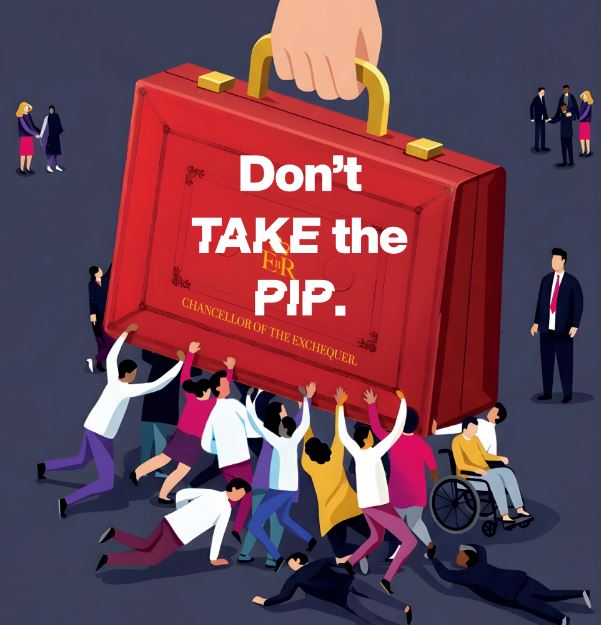 The government published its welfare bill on Wednesday (18 June) confirming plans to make cuts to personal independence payments (PIP).
The government published its welfare bill on Wednesday (18 June) confirming plans to make cuts to personal independence payments (PIP).
The Universal Credit and Personal Independence Payment Bill reiterated that people will need to score 4 points in at least one daily living activity to be eligible for the daily living component of PIP.
This is despite strong opposition from Labour MPs, as well as charities like Epilepsy Action, saying cutting PIP will be “damaging” for disabled people.
In the welfare bill, the government is offering a “13-week period of financial support” for people affected by the PIP changes.
However, Epilepsy Action says the reform plans don’t add up, with many PIP claimants already in work, and appear to be an “attack on disabled people”.
The organisation launched its campaign ‘Don’t take the PIP’ last month in response to the proposed welfare reforms. It has sent out campaign postcards to over 200 MPs, urging them to vote against the changes.
View this post on Instagram
Impact on more working people claiming PIP
With this bill, the government says it wants to help get more people into work and save £5 billion by 2030.
The government says some people will benefit from a higher rate of universal credit (UC) and a lack of reassessments for those in the Severe Conditions Criteria group. It is also committing to a £1bn employment support package to help more disabled people get into work.
However, a Freedom of Information (FOI) request from the Department for Work and Pensions, revealed to Private Eye, has shown that the changes will impact more working than non-working people claiming PIP.
The FOI figures say that of the 2.69 million people claiming PIP, 510,000 are working. The government’s plans will cause 281,000 of them – more than half – to lose PIP.
In addition, previous DWP estimates showed that the changes could see 800,000 people lose out on £4,500, on average, a year, and push 250,000 people into relative poverty by 2030.

“Deeper and more serious problem”
Daniel Jennings, senior policy and campaigns officer at Epilepsy Action said: “It’s extremely disappointing to see the government press ahead with this attack on disabled people – the people who can afford it the least.
“Their reform plans simply do not add up – many people with epilepsy claiming PIP are already in work, and these measures will just put their ability to live and work safely at further risk.
“We know they already face a significant pay gap – 26%, the second highest after autism – so the financial consequences will be hard to bear for anyone not qualifying for PIP under the new proposals.
“We are also concerned that the 13-week contingency period isn’t enough for people with epilepsy to plan what to do if they do lose out on their PIP or be able to get the right employment support.
“There is also a much deeper and more serious problem here that the government needs to tackle first and foremost. Many people with epilepsy still face so much discrimination in the workplace, as highlighted in our ‘If I Told You’ campaign launched this week, with many telling us they have been treated appallingly by their employers or worse, sacked, because of their seizures.
“If the government really is serious about getting people into work, it needs to tackle the insidious and harmful attitudes among employers and support people with epilepsy to stay in work and achieve their full potential. Otherwise, these welfare reform plans will merely be a sticking plaster, causing much longer-term damage in the future.”
The House of Commons is expected to vote on the bill in the week commencing 30 June.
You can still help to oppose the changes by taking part in the campaign or writing directly to your MP.

DON'T TAKE THE PIP
Many people with epilepsy already struggle to stay afloat.
Now even the little support they get could be taken away.
We won’t stand for this.




